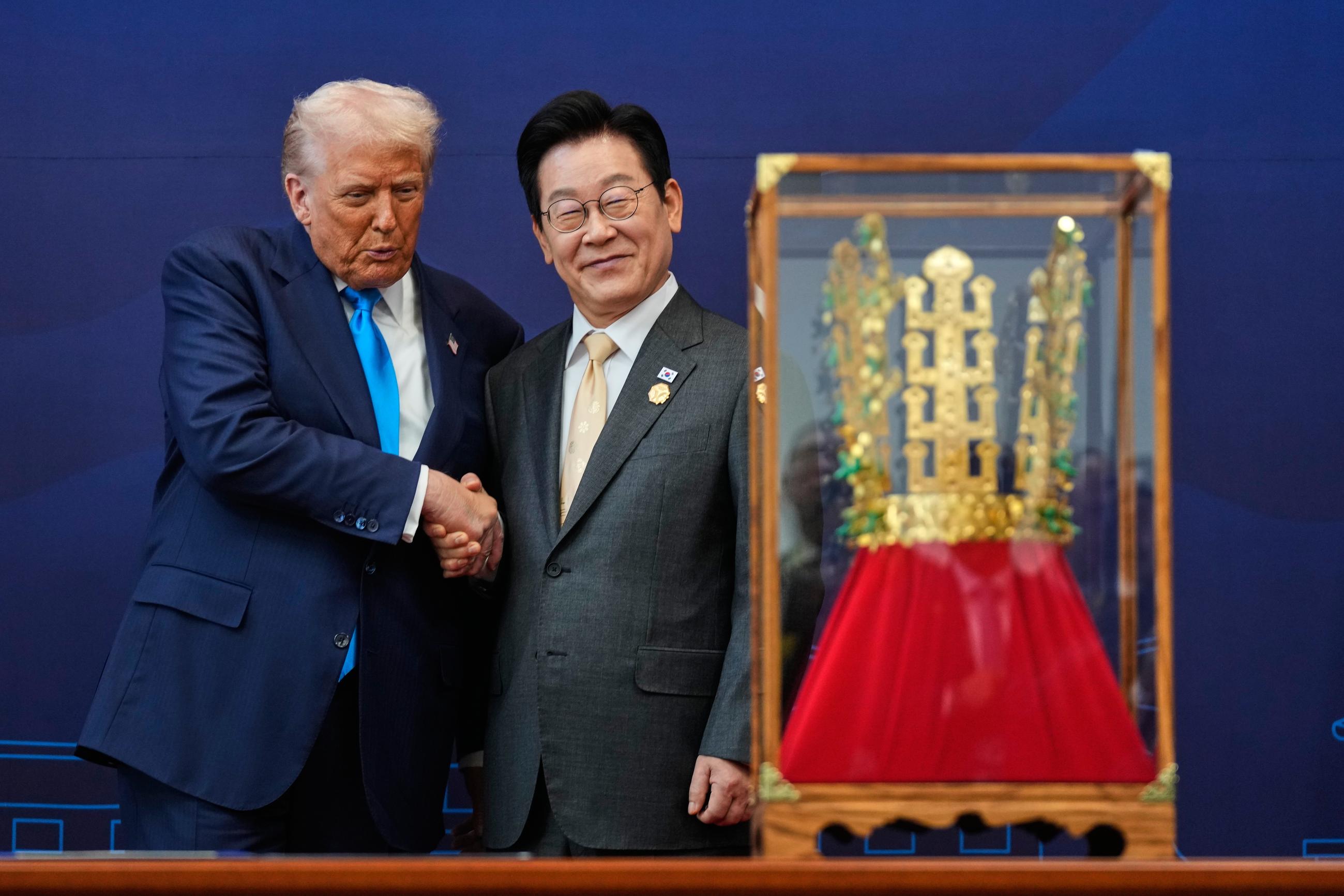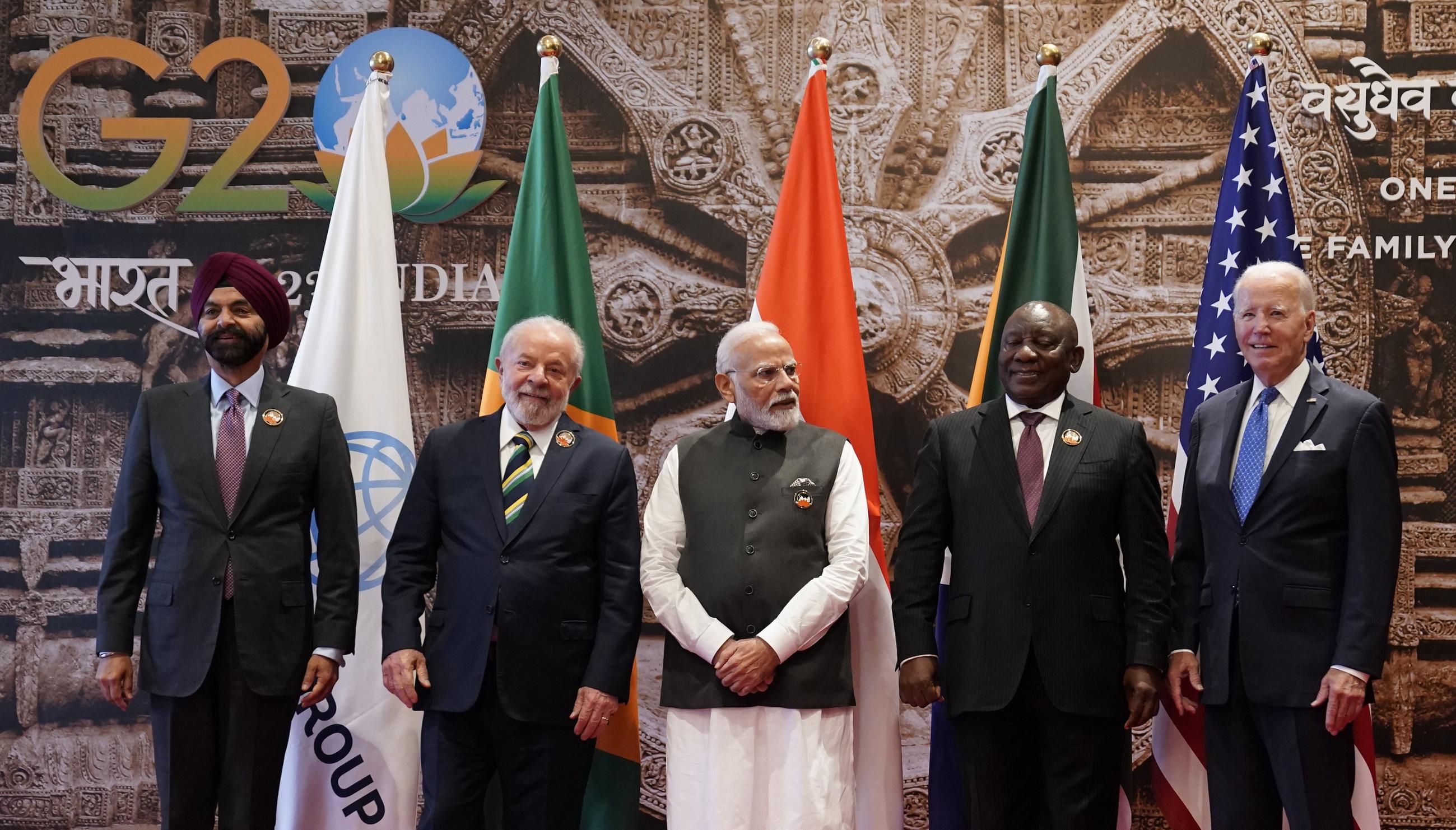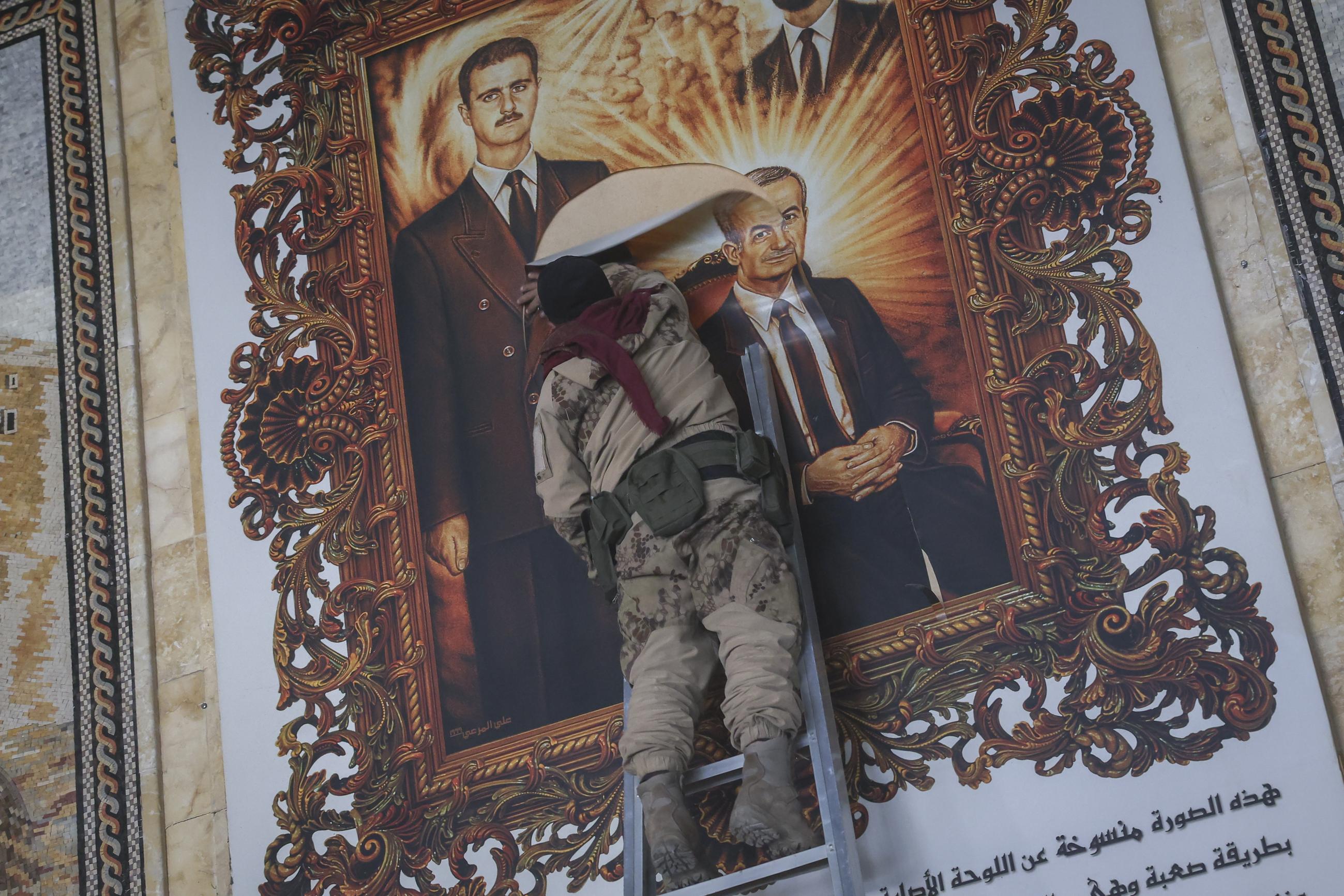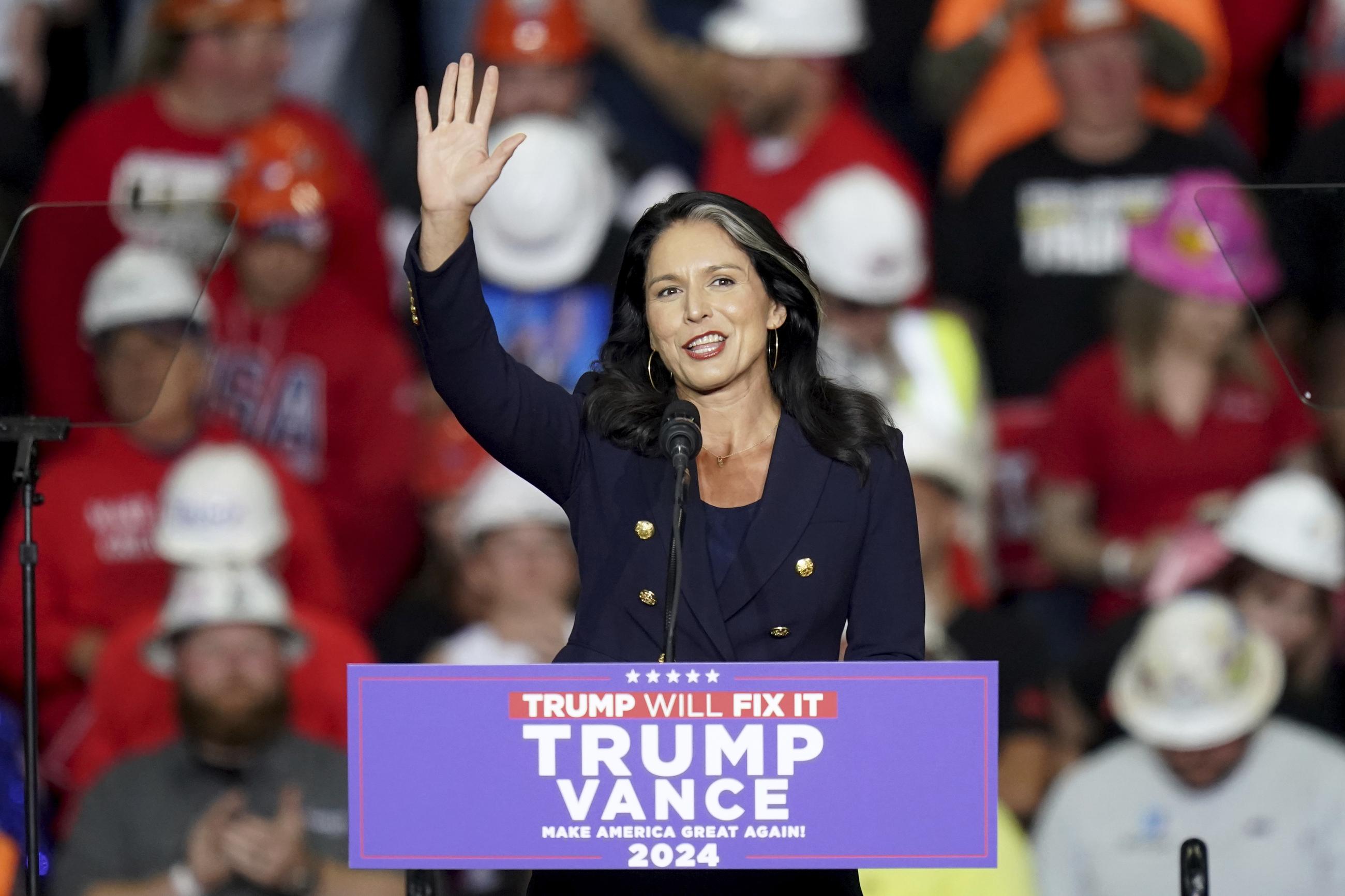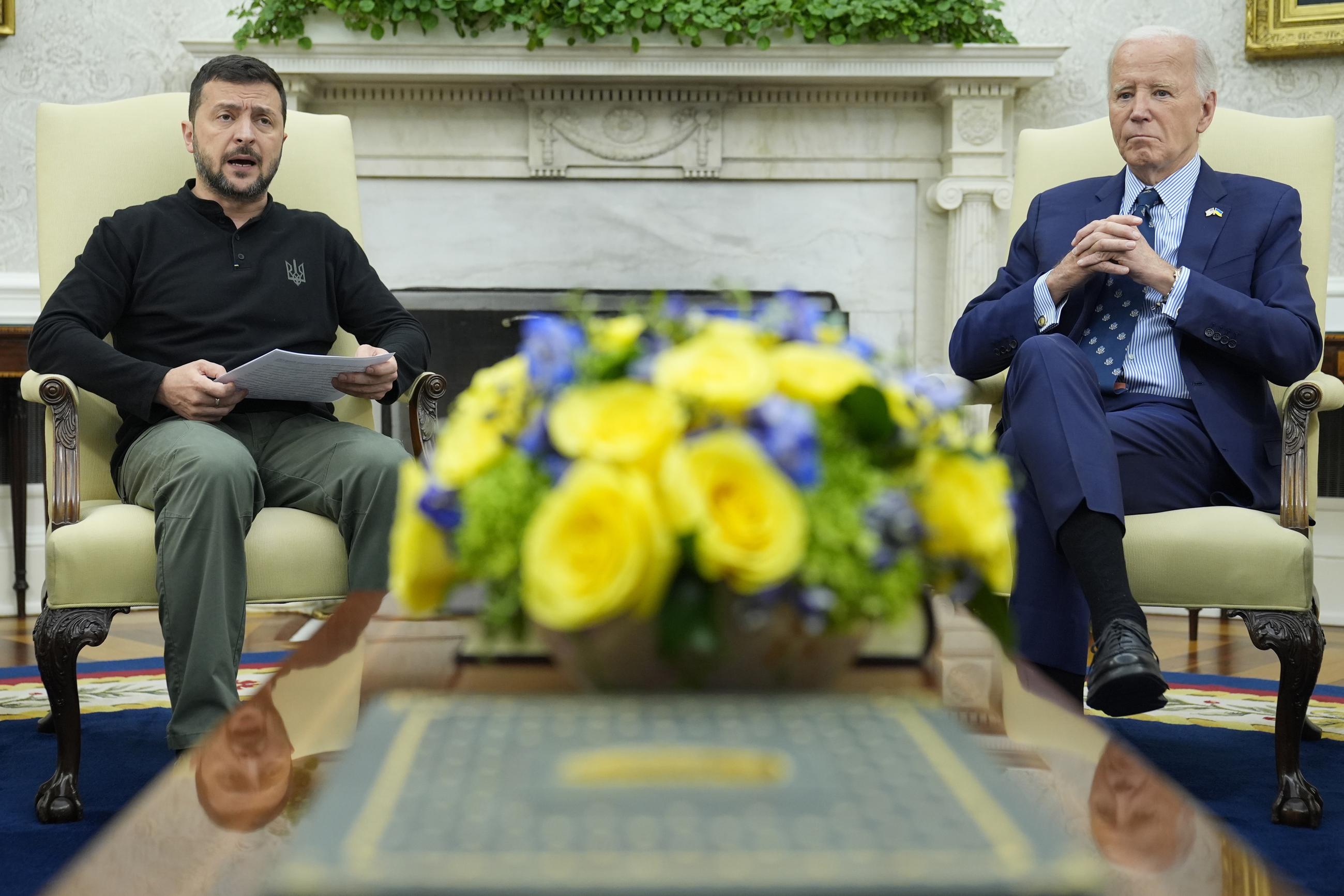President Trump made sure he’s back in Washington in time to preside over trick-or-treating at the White House. But he is soon to discover that far scarier things lie in wait than the witches, goblins, and—this year’s trending costume—K-pop demon hunters.
Just like the sugar high of Halloween candy, the pomp of summits and the fawning praise of foreign leaders never last. They always give way to the domestic problems that were bedeviling a president before he left—and in this instance only grew worse during his six days in Asia.
Trump comes back to bad polls, an intractable government shutdown, the growing likelihood of Republican losses in Virginia and New Jersey, rising inflation, a looming health-cost crisis, and the ghost of Jeffrey Epstein, who just won’t stop haunting his former friend.
The transition back could be jarring for Trump after a week of medals, crowns, and fulsome praise.
His political problems did not go away. He still has to deal with a monthlong government shutdown that threatens to become the longest ever, with no resolution in sight. Stopgap efforts to make sure the military are being paid present their own complications. Air-traffic controllers have missed their first full paychecks, and the president of the National Air Traffic Controllers Association has warned that “the problems are mounting daily.”
Even more Americans will feel the pain of the shutdown starting this weekend, when the estimated 42 million who count on food stamps see funding for the Supplemental Nutrition Assistance Program run out.
That’s also the first day of open enrollment for the 24.3 million Americans enrolled in the Affordable Care Act marketplace for health care coverage. Democrats have warned of sticker shock and soaring premiums if Obamacare subsidies are allowed to expire at the end of the year.
Another lingering challenge to Trump will burst back into the headlines when—or if—Speaker Mike Johnson ever calls the House back into session after its long recess.
When the representatives return to Washington, Johnson will have no choice but to swear in Rep.-elect Adelita Grijalva, the Arizona Democrat who won her seat in a special election on Sept. 23 but still has not been sworn in by Johnson. She has pledged to be the decisive 218th signature on a bipartisan petition to force a vote to release the Justice Department files on convicted sex offender Jeffrey Epstein, a move that Johnson and the White House oppose.
Other issues that don’t have specific deadlines also hold potential peril for the president. It is uncertain if anything negotiated on the trip will ease the pain or forestall bankruptcies in a farm belt hit hard by frozen soybean purchases or foreign beef imports.
Also on the list are the trade war he intensified by slapping new tariffs on Canada out of pique for a Canadian commercial he disliked, the ramping up of his military threat to Venezuela, and the continuing political fallout from his demolition of the White House East Wing and plans to force through the construction of a mammoth ballroom to replace it.
Nor, outside Washington, is there good news for Trump and Republicans in the two biggest off-year races. Democrats are ahead in the gubernatorial contests in both Virginia and New Jersey. In Virginia, the latest survey shows Democrat Abigail Spanberger 7 points ahead of Republican Winsome Earle-Sears. In New Jersey, Democrat Mikie Sherrill has a narrower, 5-point lead over Republican nominee Jack Ciattarelli.
Closer to home for the president, there is no sign the foreign praise has boosted his popularity, despite his claim during the trip that “I have my best numbers ever.” The actual numbers tell a different story. The weekly tracking of Trump’s approval ratings by The Economist shows him at the lowest point of his second term, at only 39 percent approval, 18 points underwater.
The Reuters-Ipsos poll similarly shows Trump’s favorable rating at a nadir of 40 percent.

The classic example of a president hoping Air Force One could take him away from his problems was Richard Nixon in 1974.
His presidency crumbling under the weight of the Watergate investigations, Nixon hit nine countries in two trips over 18 days in June and July. He met with five presidents, three kings, three prime ministers, one queen, two chancellors, one premier, and one general secretary. He was feted at dinners, praised as a global peacemaker, and cheered by thousands. He made history as the first president ever to visit Syria and Israel.
None of the foreign leaders tried harder to buck Nixon up than Saudi Arabia’s King Faisal. At a glittering dinner in the palace in Jeddah, the king stressed that “what is very important is that our friends in the United States of America be themselves wise enough to stand behind you, to rally around you, Mr. President.” He added that “anybody who stands against you, Mr. President, in the United States of America or outside the United States of America … obviously has one aim in mind, namely, that of causing the splintering of the world.”
Nixon basked in the praise.
Thirty-seven days after he returned, a far more somber president addressed the nation, giving up the fight and relinquishing the presidency.
Likewise President Reagan, during the depths of the Iran-Contra controversy in 1987, got pictures of himself with Pope John Paul II at the Vatican. President Clinton traveled extensively in Europe, Africa, China, Korea, and the Middle East while facing down impeachment in 1998. The travel spared neither president the fallout from domestic scandal.
“All modern presidents like to use trips abroad to spotlight their role as ‘diplomat in chief.’ And, for a few days, they can redirect attention to themselves on the world stage and perhaps receive warmer welcomes there than at home,” said Barbara Perry, co-chair of the Presidential Oral History Program at the University of Virginia’s Miller Center and professor of presidential studies.
But attention inevitably shifts back: “Like Nixon and Clinton, Trump will not solve his problems by foreign travel.”
Perry did note that Trump has managed to survive crises that have wounded past presidents. “He is unlike any previous president who might have been undermined by similar circumstances,” she said.
Still, the weight of history is against him. The lesson from 1974, reinforced in 1987 and then again in 1998, is clear: Praise from foreign leaders is nice, but it has never distracted American voters or partisan attackers from what matters at home.

